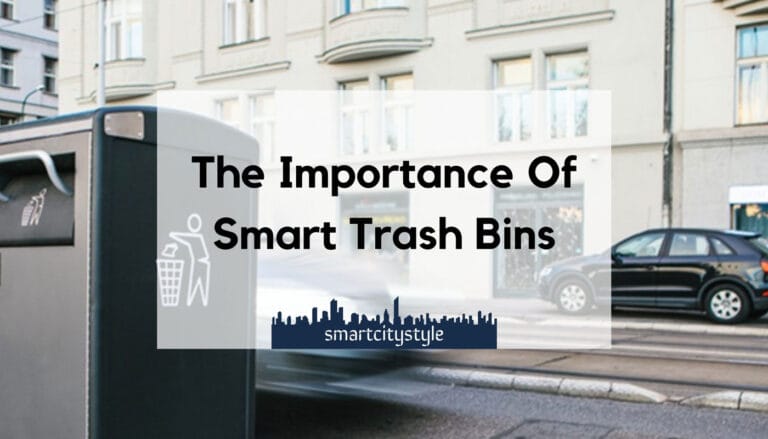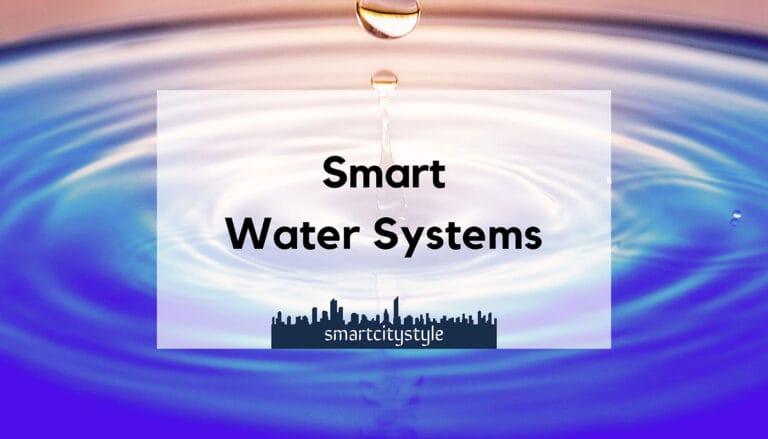Building Efficient and Sustainable Cities With Smart Utilities
Smart utilities, like smart devices and smart clothing, are the way of the future. Smart utilities are a vital piece of the puzzle when it comes to energy conservation. They also create opportunities for utility companies and users alike to make significant savings on bills.
Let’s take a look at smart utilities and how they can help build better, more efficient smart cities in the future.
What Are Smart Utilities?
Smart utilities generally refer to companies that supply and manage gas, electricity, and water and employ connected sensors to improve service delivery. Utility companies employ digital technology throughout their grids to bolster operational efficiency.
Picture this scenario:
As a business owner, your building might have a water leak that you can’t see. If that carries on without detection, it will affect your overall water pressure, which will mean that you have to hire a plumber to come and run diagnostics (a lot of headaches), but it will also affect your overall water bill.

If, however, you had a smart water meter installed, this meter could instantly pinpoint the problem and alert the utility company about the issue. These meters consider normal water usage and compare that to current occurrences. It relays that information to software that flags the abnormal usage and runs diagnostics on the entire system to find the change.
The speed at which this smart meter can detect abnormalities within the system can save you hundreds of liters of water and thousands of dollars in plumbing or water damage fees.
How Do Smart Utilities Work?
Even though every smart utility provider probably has their own proprietary system or is in the process of building one for security reasons, smart utilities generally work using a few key pieces of smart technology:
- A smart meter
- Smart sensors
- A software application
The smart meters use sensors to collect and transmit data from the customer’s meter through a gateway. Utility providers have gateways that are designed to collect data from specific areas of their smart grid.
This data is then transmitted to a special software application. This software is sometimes designed to transmit certain commands, such as running diagnostics or shutting down a smart grid’s specific meter.

The problem with smart utilities is that, despite needing and actually running on these Internet of Things (IoT) technologies, they do need connectivity, and without it, the entire grid is almost useless. Without a working network, smart devices can’t communicate with one another or the software application.
There are, however, several solutions in place to ensure that these smart devices always have connectivity:
Battery Power
Batteries power most smart meters. They are often located underground or indoors. As such, they fully depend on low-powered connectivity solutions that easily of through dense materials. These solutions include ZigBee, M-bus or wireless M-bus networks that can transmit data to the respective gateways.
Gateway Connectivity
The smart metering gateways can easily be hardwired and, as such, don’t necessarily need battery power, although this can be used as a backup. However, since gateways receive data from a large number of smart meters, their connectivity is paramount.
These gateways transmit this data to the associated software application. As such, they need cellular connectivity, which is readily available through several cellular service providers. It’s only a matter of finding the most efficient and cost-effective option.
The Primary Benefits of Smart Utilities
Undoubtedly, the utility industry is changing, and industry leaders are embracing the need for smart infrastructure and utilities. Here are some of the key benefits of smart utilities, both from a business and a consumer point of view.
Better Asset Management
Smart utilities enable utility companies to easily identify, in real-time, any issues that might affect their field assets, such as water mains or electrical transformers. This lets the engineers deal with the necessary repairs beforehand and avoid service interruptions.
Not only does this save money for the utility company in terms of overtime pay, but it also improves customer satisfaction.
Better Predictive Analytics
Smart utilities use Internet of Things (IoT) devices to gather data and gain insight into customer usage patterns. This allows for predictive analytics that ensures adequate allocation of energy and water resources and the smart meters to detect any slight changes or inefficiencies that might otherwise go unnoticed.
These minor changes could occur due to mineral scaling or corrosion and would typically take a long time to be detected. Predictive analytics, in this case, enables predictive maintenance calls and prevents small problems from developing into larger, more expensive repairs.
Grid Modernization
The more the world moves towards smart cities, the more it will need modernized grids with advanced metering infrastructure. To maximize resource management, this grid will need to be capable of holding multiple smart systems from several utility management companies at the same time.

Energy efficiency is already a big factor in fighting global warming; this modernized smart grid also should be able to hold utilities that are powered by renewable energy sources. The current grid network can’t provide these services, which is one of the main benefits of transitioning to a modern smart grid infrastructure.
Smart utility grids can also employ various technologies to continuously monitor the grid. This allows utility companies to find potential threats early so that they can be dealt with before a service interruption.
Conclusion
Thinking about living in a smart city with smart energy and utilities is exciting, but you need to remember there are risks to this lifestyle as well. IoT devices are sensitive to attacks. The more devices we have in our homes, the more opportunities a hacker has to get inside.
It is easy for hackers to gain access to unprotected Wi-Fi. These risks are for sure scary but also shouldn’t be a deterrent to adding smart devices to your home’s arsenal. Smart utilities do offer wonderful opportunities for massive savings in terms of money and excellent resource optimization opportunities.
The best way forward is to invest in robust IoT security for every smart utility you own!
Inspired? Pin it!







